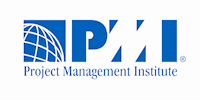Project and Programme Management Expert Bundle
Training Deals
Includes PRINCE2, AgilePM, PMP and more + exams
Summary
- Exam(s) / assessment(s) is included in price
Add to basket or enquire
Overview
Certifications
PMI Agile Certified Practitioner (PMI-ACP)
PMI Project Management Professional (PMP)
PRINCE2® Foundation & Practitioner
Agile Project Management (AgilePM®) Practitioner Certificate
Agile Project Management (AgilePM®) Foundation Certificate
Description
The bundle covers the following topics:
AgilePM Foundation and Practitioner
- Choosing the right approach
- The basics of Agile Project Management
- Roles and Responsibilities and delegation
- Preparing for an Agile project
- The factors that lead to success
- Agile lifecycles
- Processes and Products
- Communication in an Agile project
- Iterative development
- Prioritisation and Time boxing
- Maintaining control in an Agile project
- Anticipating and Managing risk
- Requirements and Estimating
- Agile Planning
- Building in quality Consolidate your previous Agile knowledge
- Successfully implement an Agile methodology into all aspects of your projects
- Communication in an Agile project
MoP Foundation and Practitioner
Management of Portfolios (MoP®) Foundation:
- The nature of MoP®
- The strategic and organisational context
- The five principles of Portfolio Management
- Portfolio Definition Cycle
- Portfolio Delivery Cycle
- Portfolio Management Roles, Documentation and an Assessment of the Impact of Portfolio Management
Management of Portfolios (MoP®) Practitioner:
- Implement, Sustain and Measure
- Portfolio Definition Cycle
- Portfolio Delivery Cycle
- Roles and Documentation
MoV Foundation and Practitioner
MoV® Foundation Training:
- Objectives
- Foundation Exam overview
- Overview of the syllabus
- Question types introduction
- Introduction to MoV®
- Principles
- Processes
- Techniques
- Exercise in function analysis
- Approach to implementation
- Environment
- Embedding
- Appendices
- Exercises, revision, sample exam
MoV® Practitioner Training:
- Foundation Training material summary
- Practitioner course and exam objectives
- Exam overview and question kinds
- Practice exercises, concentrating on MoV® tools and techniques
- Discussion topics focusing on all aspects of MoV®, in the context of demands and objectives
- Model exam
MSP Foundation and Practitioner
MSP® Foundation Course Outline:
- Principles of MSP®
- Governance Theme
- Organisation
- Vision
- Leadership and Stakeholder Engagement
- Benefit Realisation Management
- Blueprint Design and Delivery
- Planning and Control
- The Business Case
- Risk Management and Issue Resolution
- Quality Management
- Transformational Flow Overview
- Identifying a Programme
- Defining a Programme
- Managing the Tranches
- Delivering the Capability
- Realising the Benefits
- Closing a Programme
- Tailoring MSP® to the Programme Environment
MSP® Practitioner Course Outline:
- Programme Management Themes
- The Transformational Flow
- Case Studies
- Applying MSP® principles to programmes and using MSP® to maintain programme focus and stakeholder commitment
P3O Foundation and Practitioner
- Essential P3O® operations, concepts and, application to your business
- Individual, collaborative, and integrated working methods
- P3O® Model and implementing/Re-energising a P3O®
- Essential tools and techniques
- Benefits of project management
- Risk analysis and for-seeing issues
- Best practice in P3O® projects
- Support structures development
- Encouraging and using evidence-based decision making
- Quality assurance
- Roles of responsibility and clear delegation of tasks
- Supporting provision
- Improving the financial aspects of projects
- Creating a skilled workforce
- Optimising resources
- Predict efficiency by creating capability models
- Promote business transparency
- Enable regular practice and reliable project management
- Support structures development
- Quality assurance
- Supporting Provision
- Business case
- Model customisation
- P3MS summary
- Functions and services
Project Management Professional (PMP)®
The five project management Process Groups:
- Initiating
- Planning
- Executing
- Monitoring and Controlling
- Closing
The ten project management Knowledge Areas:
- Project Integration Management
- Project Scope Management
- Project Time Management
- Project Cost Management
- Project Quality Management
- Project Human Resources Management
- Project Communications Management
- Project Risk Management
- Project Procurement Management
- Project Stakeholder Management
PMI Agile Certified Practitioner (PMI-ACP)
- Agile Principles and Mindset
- Value Driven Delivery
- Stakeholder Engagement
- Team Performance
- Adaptive Planning
- Problem Detection and Resolution
- Continuous Improvement
Praxis Framework Foundation and Practitioner
Praxis Framework™ Foundation:
Module 1: Introduction
Module 2: Knowledge
- Context
- Management
Module 3: Method
- Process Models
- Documentation
Module 4: Competence
- Management Competencies
- Process Competencies
Module 5: Capability Maturity
- Capability
- Maturity
Praxis Framework™ Practitioner:
- A Review of Praxis Framework™ Foundation
- Tailoring and Applying Praxis to your Organisation
- The Roles and Responsibilities of:
- The P3 Manager
- Praxis, PRINCE2®, & MSP®
- The Relationship between the Four Core Praxis Elements
PRINCE2 Foundation and Practitioner
- Introduction to Projects and the PRINCE2® methodology
- Business Case Theme
- Risk Theme
- Quality Theme
- Organisation Theme
- Plans Theme
- Change Theme
- Progress Theme
- Applying PRINCE2® principles
- Initiating, Directing, Controlling and Managing Process Activities
Scrum Master
- Module 1: Introduction to Lean, Agile, and Scrum
- Module 2: Overview of Scrum
- Module 3: Scrum Artefacts
- Module 4: Sprints and the Scrum Framework
- Module 5: Roles and Responsibilities
- Module 6: The Scrum Master
- Module 7: Facilitation, Coaching, and Servant Leadership
- Module 8: Collaborate Decision Making
- Module 9: Scaling and Adaptation
Who is this course for?
Project managers and anybody requiring substantial project management knowledge.
Requirements
There are no prerequisites but some prior project management knowledge will help you.
PMI-ACP and PMP certifications have prior experience requirements, however you can still sit the courses without this.
Questions and answers
Reviews
Currently there are no reviews for this course. Be the first to leave a review.
Sidebar navigation
Legal information
This course is advertised on Reed.co.uk by the Course Provider, whose terms and conditions apply. Purchases are made directly from the Course Provider, and as such, content and materials are supplied by the Course Provider directly. Reed is acting as agent and not reseller in relation to this course. Reed's only responsibility is to facilitate your payment for the course. It is your responsibility to review and agree to the Course Provider's terms and conditions and satisfy yourself as to the suitability of the course you intend to purchase. Reed will not have any responsibility for the content of the course and/or associated materials.


.png)


